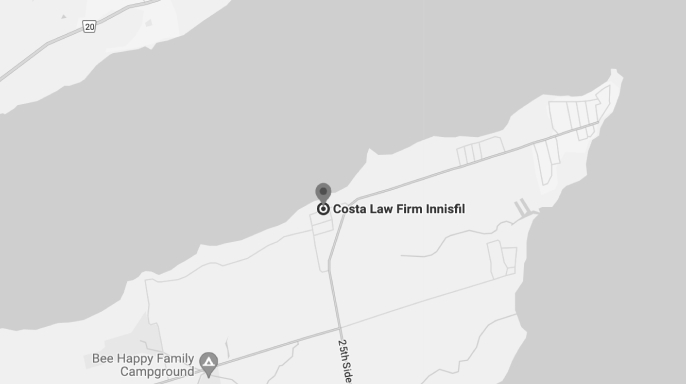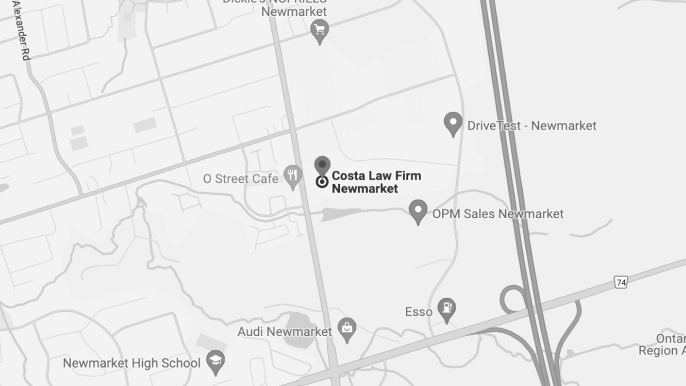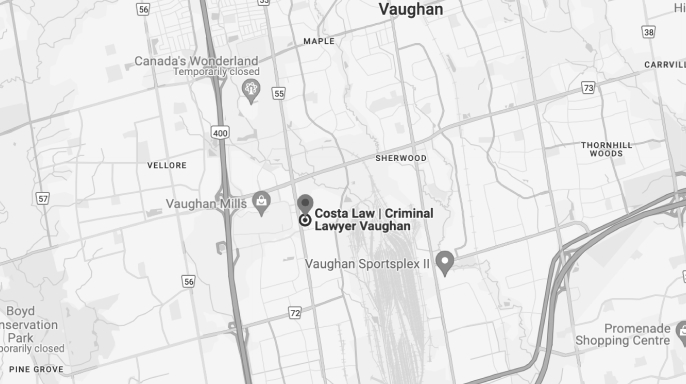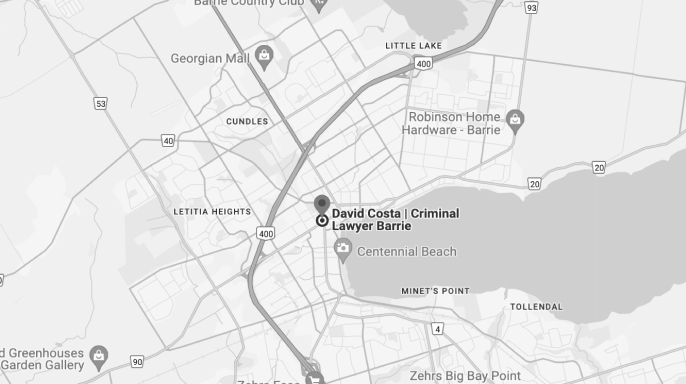Can You Get a DUI on a Bicycle?
The term DUI refers to a criminal offence of operating a motor vehicle with a blood alcohol concentration of .08 or higher, or with more than two nanograms of THC per milliliter of blood, as defined under the Criminal Code of Canada.
Typically, one hears about DUIs as they apply to cars, commercial trucks, and motorized vehicles rather than non-motorized bicycles. The consequences of DUI charges may include fines, license suspension, and jail time.
A bicycle, however, is not a motorized vehicle. This lends itself to many casual and daily bicycle riders asking the question of what happens if you are caught riding a bicycle after having consumed alcohol and whether the legal implications are similar to being impaired and driving a motor vehicle.
In short, no region in Canada will charge a person riding a traditional bicycle while intoxicated with a DUI. Here’s why.
Understanding DUI Laws and Bicycles
Driving Under The Influence, or a DUI, is an offence that applies strictly to motorized vehicles, in accordance with what is stipulated under legislation such as the Criminal Code of Canada and Ontario’s Highway Traffic Act.
More specifically, laws surrounding DUI charges refer to “operating a conveyance”, such as a motor vehicle, vessel, aircraft, or railway equipment. A traditional bicycle is not a conveyance, assuming it doesn’t have a motor.
As a traditional non-motorized bicycle is not a motorized vehicle, it therefore does not fall into the conveyance category.
What Constitutes a DUI on a Bicycle?
If you are intoxicated and driving a motorized bicycle, electric bike, scooter, or bicycle with a power-assisted motor, this action is considered illegal and you can then be charged with a DUI. This is because there is motorized action involved.
If your bicycle is pedal-assisted partially or in full by a motor, it fits under this category, meaning that DUI charges are possible.
Types of Bicycles and DUI Laws
There are many types of bicycles that fall under impaired driving laws in Canada. They include, but are not limited to, the following:
- E-bikes or eelectronic bicycles
- Bicycles with power assisted electric motors
- Scooters
- Mopeds
Traditional Bicycles vs. Motorized Bicycles
A traditional bicycle being driven while intoxicated is unlikely to yield any fines or significant legal consequences and certainly no DUI charges.
Motorized bikes, however, are different. An electronic bike or if your bicycle has a motorized peddling assist device, it fits under the Criminal Code differently and is subject to DUI charges.
Legal Implications of Riding Under the Influence
The best way to discover what the legal implications are of being charged with a DUI as a cyclist is to speak with a lawyer.
The defence that many DUI lawyers in Toronto use is to focus on the use of the motor during the incident.
In some cases, with an e-bike, it may be argued that the bicycle was not being powered by the motor at the time of the incident. If there was no assistance in the propulsion and this is provable, this may provide a pathway to a successful defence.
Even if you are able to prove that the motor was a non-factor, however, the legal implications of riding a bicycle while intoxicated are that you can still potentially be charged for public intoxication and careless driving.
Careless Driving and Public Intoxication
If a driver is found riding erratically or in a manner that suggests impairment, they can be charged with public intoxication under the Ontario Liquor License Act.
In addition, careless driving charges can be applied under the Highway Traffic Act which carries fines up to $2,000.
While these are not criminal charges, they still result in fines and legal consequences that no one should want attached to their record.
Provincial Legislation: DUI Laws in Ontario
Impaired driving in Ontario refers to an impairment caused by alcohol, cannabis, over-the-counter drugs, prescription medications, illegal substances, or a combination of these.
DUI laws apply specifically to individuals driving cars, trucks, boats, snowmobiles, and off-road vehicles.
If the police determine you are driving while impaired, in Ontario, they can suspend your license on the spot, issue a fine, require you to enroll in an education or treatment program, impound your vehicle, and/or issue harsher penalties upon conviction.
DUI charges and the legal consequences of driving under the influence vary depending on your age, licence type, the amount of alcohol or drugs in your system, and whether you have prior convictions or licence suspensions on your record.
Riding While Impaired Laws
All Ontario are encouraged to drink responsibly. When you are riding while impaired, there are evidently non-DUI laws you have to consider.
Under the Criminal Code, public drunkenness refers to any disturbance in or near a public place by being drunk. More specific examples of public intoxication and disorderly conduct include any fighting, screaming, shouting, swearing, singing, impeding or molesting other people, exhibiting an indecent exhibition, obstructing other people, disturbing the peace and quiet, and general disorderly conduct.
In Ontario, you can be arrested for being drunk in public and this includes riding while intoxicated. The police do not need to wait for you to make a disturbance to arrest you, as stipulated in the Liquor Licence Act.
Motor Vehicle Laws and Bicycles
There is a long list of motor vehicle laws in place to protect cyclists from motorists and to encourage both to share the road responsibly. Many cyclists are aware of the more basic laws to follow, such as wearing a helmet.
As it relates to DUIs and impaired cycling, a police officer in Ontario is permitted to stop someone riding a bicycle if they are assumed to be an impaired cyclist.
Under the Liquor Licence Act, no individual is permitted to be drunk in a public space. A police officer is within their rights to question a rider, however, DUI charges are – as stated earlier – non-applicable if it’s a non-motorized bike.
Other Consequences of Riding Under the Influence
Criminal Negligence
When you ride a motorized bike while impaired and cause bodily harm, it is considered criminal negligence.
If this is your first offence of criminal negligence relating to an alcohol impaired driving charge, expect a minimum one-year driving prohibition, a minimum fine of $1,000, and a likely possibility of jail time if there was bodily harm or a fatality.
That said, it is difficult to associate criminal negligence with riding a bicycle due to the fact that even if one drives recklessly, it does not necessarily mean they are putting the lives of others in danger. It can occur but is rare.
Charter Violation
Should you be arrested under DUI charges, there is also the matter of if your Charter rights were respected or not in the process. In some cases, delayed legal access, unclear charges, and other issues surrounding the circumstances of arrest may exclude evidence or result in a case dismissal.
In several situations, a person riding a bike charged with a DUI should not have even been charged in the first place.
Police must have valid grounds for a DUI arrest under the Canadian Criminal Code. If they do not, as is sometimes the case with cyclists, such charges can be contested.
Safety Considerations
It is not safe to ride a regular bicycle after consuming alcohol. It’s unsafe for you and those around you, and shouldn’t even be attempted.
Alcohol impairs judgment and reaction time, and increases the risk of getting into an accident.
The Risks of Riding Under the Influence
When one is riding a bicycle under the influence of alcohol, it reduces how much attention one pays to their surroundings. If a cyclist is swerving in and out of their lane or is unsteady, this puts them and others at risk.
Whether you have had one alcoholic beverage or multiple, you take a risk when you get on your bicycle afterward. You run the risk of biking into someone or something, causing vehicles to swerve out of the way to avoid hitting you, and/or causing a fatality based on your behaviour on the road or delayed reaction time.
Stay Safe and Informed
While you cannot have DUI charges applied for riding a traditional bike under the influence, such behaviour is still dangerous and has other legal repercussions.
As mentioned, if it is a motorized bike or e-bike, DUI charges can apply under the Criminal Code.
If you are facing criminal DUI charges relating to biking under the influence, speak to a lawyer at Costa Law Firm. Our team understands the complexities of DUI offences in Ontario and Canada, and can craft a robust defence strategy designed to achieve the best possible outcome for you.
Don’t be intimidated by the law. Give the experts at Costa Law Firm a call. Connect with an experienced lawyer today and receive a free consultation.
CAUTIONARY WARNING: these writings are intended by Costa Law Firm Professional Corporation to serve strictly for promotional purposes and are not to be considered to be legal advice to the reader’s particular situation – ALWAYS actively consult directly and exchange particular information with a licensed lawyer or paralegal as appropriate in the circumstances.
David Costa
Dir.(416)788-6329





